Day 44. ILLINOIS Bishop Hill
73 miles 1,457 feet
I crossed the Mississippi for the last time this trip and it was at its best. After climbing out of the Mississippi valley the terrain in Illinois was abruptly different: flat. Why this is so I haven't yet figured out; perhaps the western border of the last glaciation coincides with the current Mississippi. It makes the biking far easier than in Iowa, though it is hot and there are occasional headwinds.
One can see the beauty of the crops and evidence of the much greater prosperity of rural Illinois in earlier days, with beautiful old homes.
I'm staying in a B&B in Bishop Hill which I selected entirely on its 74 mile distance from Muscatine. I didn't realize Bishop Hill is a tourist destination with a remarkable history. In the 19th century 400 or so religious emigrants from Sweden walked here from Chicago and dug homes from a stream bank for the first, harsh winter. One quarter of them did not survive that winter. Things then improved and it became prosperous. The religious leader was unfortunately murdered and eventually it converted to an historical district.
On Mondays the restaurants are closed as they are in many small towns, so the local bar—established in 1954, a good year—and the pizza they make serves as dinner. I sat next to a couple also staying at the B&B. She is a retired attorney and he a retired pilot who is also a farmer. He explained how farm subsides worked (past tense because they are largely gone) and that he sells his corn and soybeans to a company and doesn't know what they do with them. Farming is in his family history. They live nearby and are visiting this town intentionally, unlike me. He points out sweet corn for humans looks the same from the road, but is often mixed in fields because it attracts raccoons.
The new crop I'm the region is wind turbines, which are being constructed on a large scale.
Tomorrow I continue east. The scenery thus far is corn and soybeans, which are alternated in the same field by many farmers. We have vast agricultural lands in this country.
I crossed the Mississippi for the last time this trip and it was at its best. After climbing out of the Mississippi valley the terrain in Illinois was abruptly different: flat. Why this is so I haven't yet figured out; perhaps the western border of the last glaciation coincides with the current Mississippi. It makes the biking far easier than in Iowa, though it is hot and there are occasional headwinds.
One can see the beauty of the crops and evidence of the much greater prosperity of rural Illinois in earlier days, with beautiful old homes.
I'm staying in a B&B in Bishop Hill which I selected entirely on its 74 mile distance from Muscatine. I didn't realize Bishop Hill is a tourist destination with a remarkable history. In the 19th century 400 or so religious emigrants from Sweden walked here from Chicago and dug homes from a stream bank for the first, harsh winter. One quarter of them did not survive that winter. Things then improved and it became prosperous. The religious leader was unfortunately murdered and eventually it converted to an historical district.
On Mondays the restaurants are closed as they are in many small towns, so the local bar—established in 1954, a good year—and the pizza they make serves as dinner. I sat next to a couple also staying at the B&B. She is a retired attorney and he a retired pilot who is also a farmer. He explained how farm subsides worked (past tense because they are largely gone) and that he sells his corn and soybeans to a company and doesn't know what they do with them. Farming is in his family history. They live nearby and are visiting this town intentionally, unlike me. He points out sweet corn for humans looks the same from the road, but is often mixed in fields because it attracts raccoons.
The new crop I'm the region is wind turbines, which are being constructed on a large scale.
Tomorrow I continue east. The scenery thus far is corn and soybeans, which are alternated in the same field by many farmers. We have vast agricultural lands in this country.
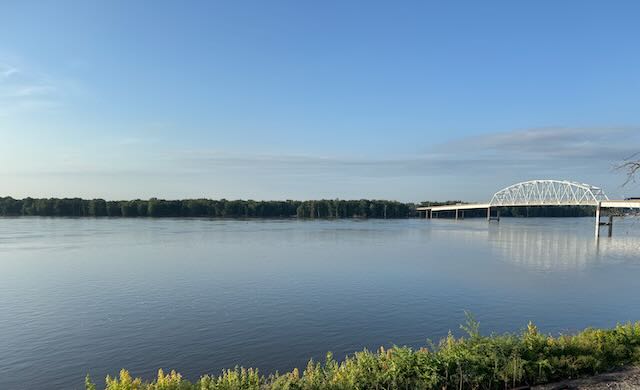
Early morning crossing of the Mississippi at Muscatine, Iowa.
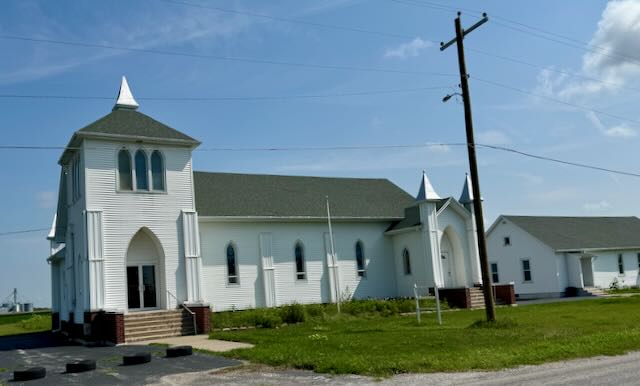
Beautiful, old, and entirely vacant church. A sign of decreasing population. The windows have stained glass.
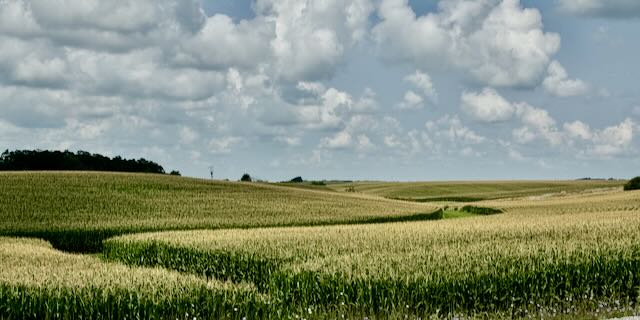
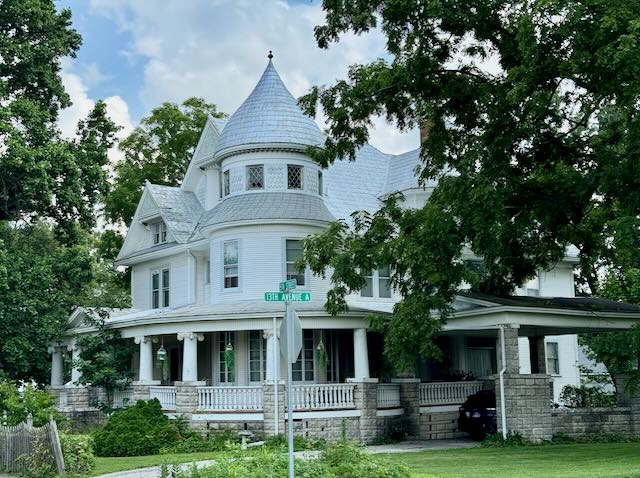
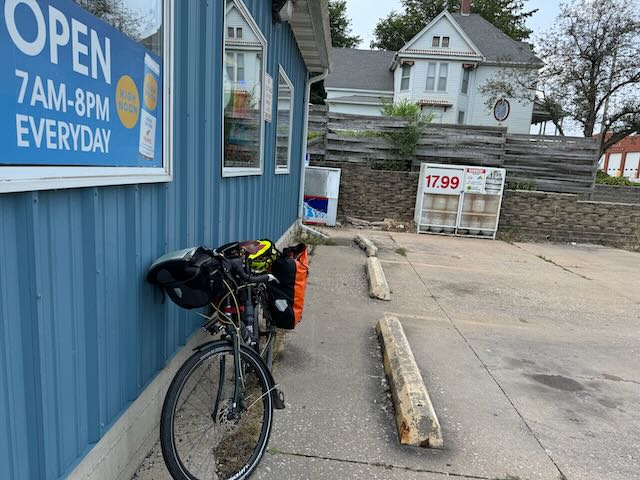
Typical scene as I buy snacks at small grocery stores.
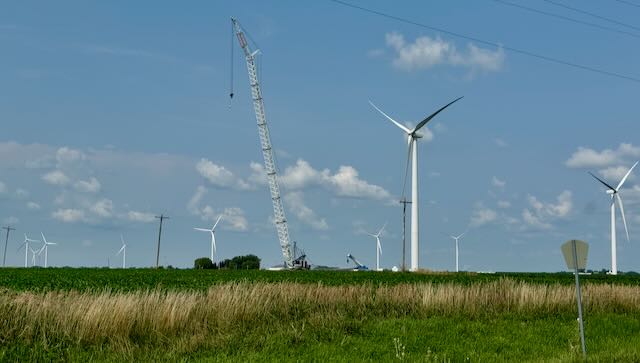
Planting the new crop.
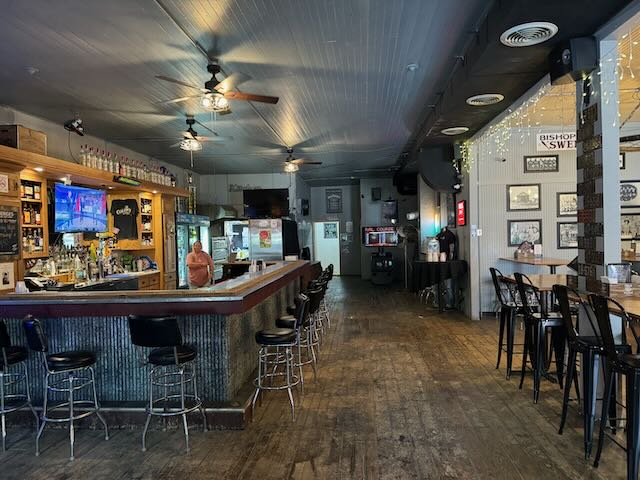
Local bar/restaurant that seems to be drawing customers.
